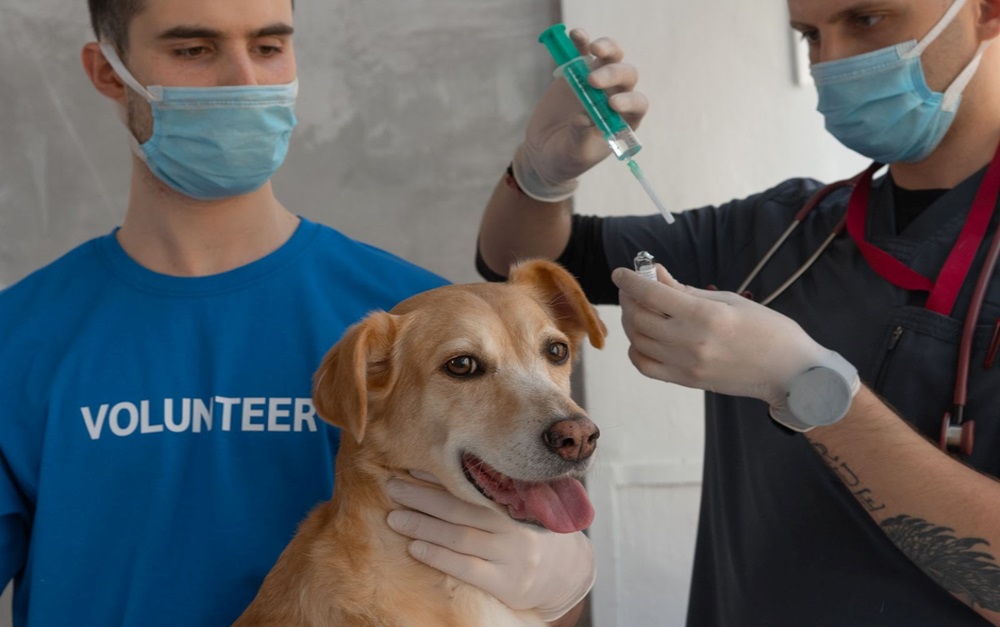Dog vaccine hesitancy, a reflection of a broader trend seen in human healthcare, has emerged as a significant concern among veterinary and public health professionals. Recent research uncovers a substantial level of hesitancy among dog owners regarding the administration of vaccines, including the crucial rabies vaccine.
Various factors contribute to this hesitancy, with potential ramifications on both animal welfare and public health. This article delves into the intricacies of dog vaccine hesitancy, explores the underlying causes, and discusses the importance of vaccination as a facet of responsible pet ownership.
Unpacking the Extent of Hesitancy
A spate of studies has illuminated the extent of vaccine hesitancy among dog owners. A notable study by Boston University’s School of Public Health discovered that 37% of dog owners view vaccines as unsafe, while 22% regard them as ineffective, and 30% deem them unnecessary.
Another study highlighted that over half of the dog owners exhibited some level of hesitancy towards canine vaccination. This hesitancy is particularly pronounced with the rabies vaccine, where 53% of U.S. dog owners questioned its safety, efficacy, or necessity.
In another poll, an alarming concern among 37% of dog parents is the unfounded fear that vaccines could induce “cognitive issues like canine/feline autism”.
Broader Societal Influences
The hesitancy towards dog vaccination is not an isolated phenomenon, but rather appears to be influenced by broader societal attitudes towards vaccines. The COVID-19 pandemic, in particular, has exacerbated anti-vaccination sentiments, which now extend to canine vaccination.
The ramifications of this hesitancy are far-reaching, escalating the risk of disease transmission among dogs, their owners, and veterinary professionals.
The Imperative of Vaccination
Addressing dog vaccine hesitancy requires a nuanced understanding of the importance of canine vaccination both for individual animal health and broader public health. Vaccination is a cornerstone of preventive healthcare for pets, significantly enhancing their health, longevity, and quality of life.
Vaccines play a crucial role in averting numerous illnesses, thereby avoiding the financial and emotional burden of treating preventable diseases. Moreover, vaccinations form a barrier against zoonotic diseases—illnesses transmissible between animals and humans—safeguarding not only the pets but also the community at large.
Assessing the Safety of Canine Vaccinations
Vaccinations are pivotal in preserving the health and longevity of dogs. They equip dogs with the necessary defenses to combat various infectious diseases, thereby significantly reducing the likelihood of illness from early puppyhood through to their senior years.
The common vaccines administered to dogs are designed to thwart several potentially fatal or debilitating illnesses. For instance, the 5-way vaccine, also known as the DA2PP vaccine, shields dogs from five prevalent viruses in a single dose.
Safety Profile of Common Dog Vaccines
Dog vaccines have been thoroughly vetted for safety and are regarded as the most cost-effective method to avert many preventable infectious diseases.
The core vaccines, including those for rabies, distemper, and adenovirus, are strongly recommended due to their vital role in protecting against severe diseases. However, like any medical intervention, vaccines are not devoid of risks.
Recognizing Potential Side Effects
Vaccines can elicit adverse reactions in some dogs, although these reactions are typically mild or transient. Common reactions, affecting roughly one in ten dogs, manifest as a soft lump at the injection site which usually dissipates on its own within a few weeks.
More rare reactions, occurring in one in 1,000 dogs, include temporary lethargy and appetite loss. Extremely rare reactions, affecting less than one in 10,000 dogs, could involve immune-mediated diseases or an allergic shock reaction.
A Closer Look at the Data
A study reported by Dogs Naturally Magazine suggested that 66% of all sick dogs begin showing symptoms within three months post-vaccination, with 49% of all reported illnesses manifesting within 30 days of vaccination, and 29% of dogs becoming ill within seven days post-vaccination.
Despite these figures, it’s crucial to maintain a balanced perspective on the risks. By vaccinating, 9,999 out of 10,000 dogs are shielded from potentially lethal diseases they might encounter, as opposed to leaving pets vulnerable to common diseases with high mortality rates by avoiding vaccination.
Sensible Vaccine Administration
Veterinarians generally advocate a rational approach to vaccination, individualizing vaccine protocols based on each dog’s unique circumstances such as their age, health status, lifestyle, breed and the prevalence of diseases in their locale.
It’s vital that pet owners engage with their veterinarians to understand the risks and benefits associated with issues such as microchipping and vaccinations, thereby making well-informed decisions tailored to the well-being of their furry companions.
Through a collaborative approach between pet owners and veterinarians, the safety and efficacy of canine vaccinations can be optimized, promoting a healthier and more protected dog population.
Vaccination and Responsible Pet Ownership
Responsible pet ownership is fundamentally intertwined with the vaccination of pets. It’s an indispensable aspect of maintaining a pet’s health and ensuring they lead a long, fulfilling life.
A responsible pet owner should consult with their veterinarian to establish a suitable vaccination schedule based on the pet’s age, medical history, environment, and lifestyle, thus ensuring their pet remains protected against a plethora of diseases.
Conclusion
The emerging trend of dog vaccine hesitancy is a complex issue with substantial implications on animal and public health. It underscores the necessity for educational initiatives to elucidate the importance of canine vaccination, not only for the wellbeing of pets but also for the broader community.
Through understanding and addressing the roots of vaccine hesitancy, and by promoting responsible pet ownership, we in the pet community can work towards a safer and healthier environment for both humans and dogs.
Related posts
Recent Posts
Advertisement


